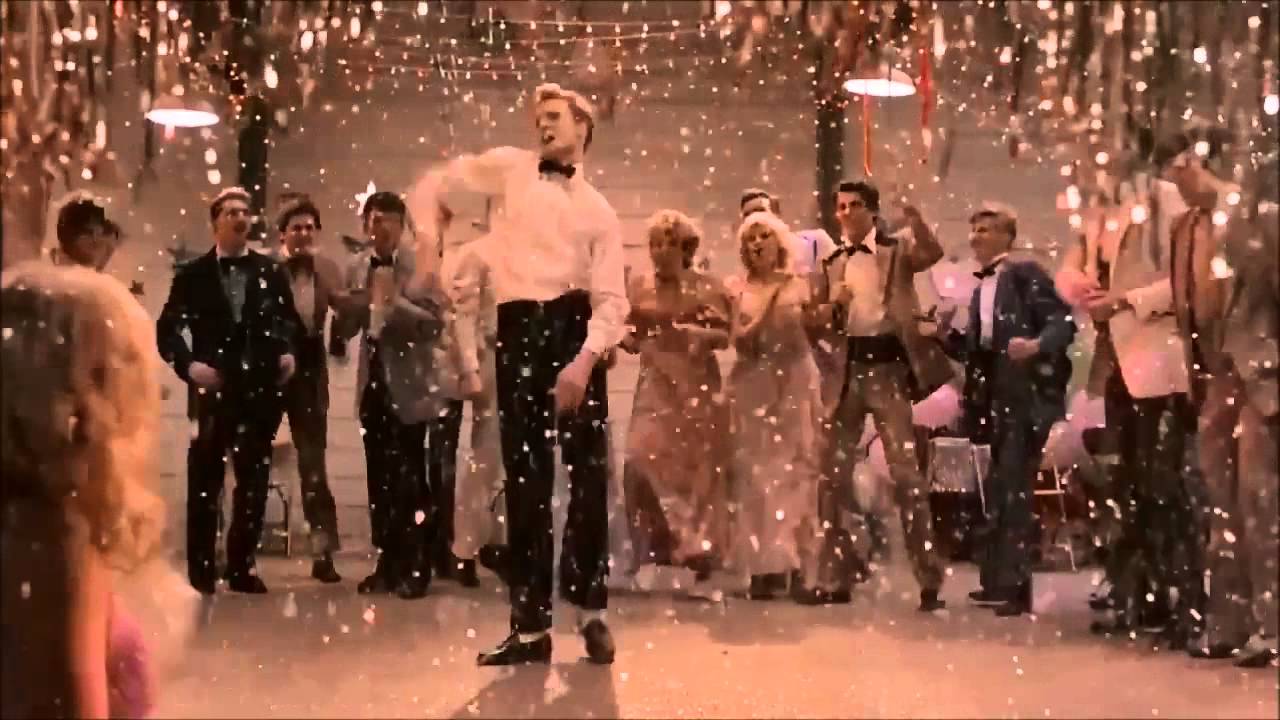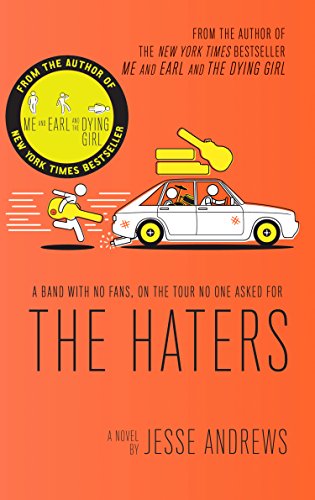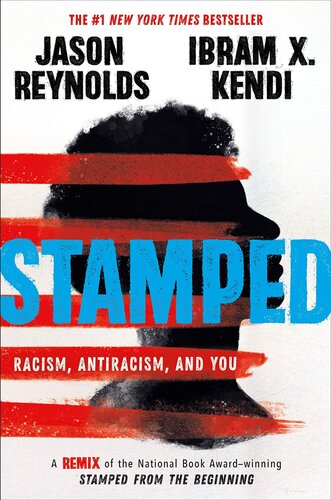Sometimes, I feel like I live in the town from Footloose. Except, when the townsfolk of Beaumont decided to move past outlawing dancing and began to burn books, Reverend Shaw stopped them, shouting, “When did you all decide to sit in judgment? Who elected all of you to be the saviors of everybody’s souls in Beaumont?”
Book banning is an insidious practice; in 2023, it is an exercise in minority rule that borders on tyranny. How did we get here? How do we protect books written for adolescents as well as the adolescents who read them?
Just say “no.” If you grew up in the ‘80s like I did, you’ve heard that statement a lot. Our parents told us to say “no” if a stranger offered us candy or a ride, and Nancy Reagan told us to say no to drugs. In the ‘90s, when we began to have productive conversations about consent, we heard once again that familiar refrain: Just say “no.”
We learned to say “no” when someone wants to do something to us that will hurt us. We learned to say “no” to people who operate in bad faith, who think that the rules don’t apply to them. When someone thinks that they can come to a school board meeting and demand ten, fifty, or one hundred books be removed from the entire school district, they are operating in bad faith and, likely (depending on your school district’s book challenge procedure), don’t think the rules apply to them.
When that happens, you can just say “no.”
These would-be censors are playing a dangerous game, and they are winning. Why do they do it? Because they think there is a special set of rules that exist for them that they can force everyone to abide by. Why are they winning? Because we don’t think censorship is a game, so we choose not to play. Acquiescence to their demands, however, is not the right way to refuse to play.
If you keep up with the news about these book challenges, you might have heard about what has been happening in my local school district. In October 2022, two complainants, within hours of each other, submitted lists of ninety-six and ninety-seven books, respectively, that they wanted removed from all library and classroom shelves. (The lists, by the way, were identical, except the second list included Ibram X. Kendi’s book Stamped.)
While the complainant whose list did not include Stamped admits to being a member of Moms for Liberty, she claims that that affiliation is not relevant to the complaint. While Booklooks.org is not affiliated with Moms for Liberty, the complainant used Booklooks.org to compile her list of books that she wanted banned. There have also been reports that Moms for Liberty groups in other states have used Booklooks.org in conversations about books that they believe have questionable content.
Since October of 2022, our local newspaper has published no less than thirty articles about these book challenges. The school district has estimated that it will spend at least $8,500 on this review process. Meanwhile, an informal poll taken by our local newspaper revealed that the overwhelming majority of respondents believe that every step of this process has been wrong.
Here are three more things that we know:
1) Book removals and bans are censorship.
2) Censorship is an attempt to erase American history.
3) Censorship erases the voices of LGBTQ+ youth and other marginalized communities from the classroom.
1) Don’t assume that your district will not be targeted. The groups behind these challenges are organized at a national level. They are not public institutions that are bound by district regulations and state law. They have plenty of time, energy, and resources–much more than your district does.
2) Don’t assume that these are the same kinds of book challenges that you might have read about in James Moffett’s Storm in the Mountains (1988) or Joan DelFattore’s What Johnny Shouldn’t Read (1992). Your town is not in danger of becoming the town from Footloose. Your town is in danger of becoming an unsafe place for children and adolescents from marginalized communities. These book challenges are operating in concert with the hundreds of bills working their way through state legislators that seek to fundamentally shift what students are allowed to learn and which groups of people have the right to exist.
3) Don’t assume that book challenges are about the books. In 2023, book challenges are not about books! They are about the people who are represented by the books. When you or your district choose to play the would-be censor’s game, you are telling entire groups of people that they do not matter. Scores of children, adolescents, and adults across the country have heard that message loud and clear.
Know Your Procedures to Avoid Unforced Errors
Our local school district had a form entitled “Request For Reconsideration of School Library Materials Form.” The school district publishes all Freedom of Information Act requests and results on its website, so we know the following about the complaint form submitted by one of the complainants:
1) For “Title of Material,” the complainant wrote “96 Books provided.” This request can and should have been denied because no specific book was asked to be reconsidered. Is that what a fussy teacher would say? Yes, but it is okay to be fussy when it comes to protecting our students’ right to read.
2) When asked if the complainant had read the material, she checked “no.” If your district’s policy does not stipulate that a complainant has read the book that they find objectionable in order to object to it, consider advocating for a change to that policy. If a degreed professional has ordered a book for a school library, perhaps a complainant should have to at least read the book in question before demanding its removal.
3) In response to what the complainant finds objectionable, she wrote, “To normalize and expose to minors explicit [material].” I chose not to provide here what the complainant listed as explicit, but I find the implication that authors, librarians, teachers, and other school officials are committing multiple crimes to be repugnant and representative of a lack of civility. If your school board meetings have procedures to deal with repugnant behavior and/or harassment, consider that language on forms and in correspondence should be held to the same standards.
4) When asked how the complainant perceives students would be affected by material, she wrote, “What I perceive is not in question. It is against the law to disseminate material that is harmful to minors.” I interpret this answer as “I don’t know.” Again, the bar to a book challenge ought to be higher than–well, nothing. Consider making sure your district’s guidelines are specific and put an actual burden of proof on the complainant.
5) Finally, when asked what action they would like taken by the district, the complainant wrote, “Immediately remove the material from all schools and enact a policy to ensure no more material of this nature is allowed to make it into the district whether in school libraries, assigned in curriculum, or in classroom libraries.” Ultimately, the action requested is an overreach. The parent is demanding unilateral power over a public government entity. That is not a valid demand.
Some other procedural notes to consider:
Our current local school district procedure for considering books that have been challenged is a committee that may be comprised of seven individuals, ranging from district teachers, staff, parents, and other community members. Colleen Hoover’s It Ends with Us was removed by a committee of five members, and Jodi Picoult’s Nineteen Minutes was removed by a committee of three members.
Community participation in these committees is randomized; I have yet to be selected to participate in any of the committees despite putting my name in to serve back in November of 2022. I find it troubling that anyone can demand that books be removed from school libraries and classrooms, but someone who teaches, researches, and publishes on YAL, secondary education, and censorship has to be “randomly chosen.” Meanwhile, Jodi Picoult’s book about a school shooting was banned by a committee of three people. Just a reminder: there were 51 school shootings in the United States in 2022.
Every district should have a process in place to allow a parent to request that their child not be required to read or not have access to certain books. Nearly every district already has that process already. Perhaps it would be worthwhile for districts to have a process in place for a parent to have the ability to shield their child from a broad spectrum of books based on maturity rating and/or content. Consider adopting such a broader policy to prevent these sorts of bad faith challenges.
What districts should absolutely not do is allow one parent to dictate how all other parents decide to raise their children. If book banners want the freedom to dictate how they raise their children, then districts must ensure that their policies shield other parents from parental overreach.
When Principles Matter and When They Don’t
My university has chosen not to publicly denounce censorship in general, the people who are seeking to ban the books, or the school district personnel who have enabled the book-banning. Something about upsetting the apple cart. Well, the apple cart is on fire, and now no one will have any apples. Civility is not more important than watching freedom and liberty burn.
A funny thing about civility, while we’re on the subject: It is very difficult for school officials to handle a delicate situation such as book challenges when people attend district meetings, shout, make threats, and file actual criminal complaints with the local sheriff’s office.
However, there are many university faculty, government officials, and elected representatives who do want to provide support. While it would be nice for them to do so unprompted, especially considering how stressful and time-consuming dealing with these would-be censors can be, don’t hesitate to ask for help. Better still, though, reach out before the challenges occur.
Rally Your Stakeholders–NOW!
Contact your local universities and colleges to figure out how you can make a stand together when the time comes. If necessary, remind them that these people will come after their libraries and bookstores. Remind them that, if books are banned, it will be a lot more difficult to ignore those bans when the same people behind these campaigns have convinced the state legislature to eliminate tenure.
Contact local law enforcement agencies. Ensure that they are aware of the kinds of criminal complaints that have been made against district personnel in school districts across the country. Provide appropriate background as well as district procedures for book challenges. It is one thing to know that these criminal complaints are ridiculous and offensive; it is quite another to know that law enforcement is on your side.
Are your district’s librarians having discussions with your city/county public librarians? College and university librarians? For those who graduated from an ALA-accredited MLIS program, do those ALA-accredited institutions have any support that they might be able to lend?
Has your district’s legal department had a conversation with your state’s local ACLU office yet? Now would be a very good time for that. The same is true for any friendly state or national legislator.
The Clash have a song called “Know Your Rights.” The funny thing about rights is that they are theoretical until you need them. We only find out how real those rights are when they are tested. When a school district chooses not to dismiss a bad faith complaint outright, follow procedure when a proper complaint is made, or stand up for the principles of public education in general, rights remain untested and hypothetical.
Teachers and librarians–we are highly trained, yes. We are also fallible, and we certainly do not hold ourselves in any esteem above parents and other community stakeholders. We want parents to be involved in the work that we do. We invite dialogue, and we will never require a student to read a book that a parent wishes them not to read. At the same time, the ways in which book challengers are conducting themselves is irresponsible, dishonest, and reprehensible.
We do not have to deal in good faith with those who operate in bad faith. Do you remember what else they taught us to do when someone who means to do us harm attacks us? Make as much noise as you can. Now is not the time to be nice. Now is not the time to be afraid of who might misinterpret what you have to say if you don’t phrase it in just the right way. Now is the time for you to tell all the children, adolescents, and adults from all marginalized communities that you have our backs–that you won’t play this game anymore.
Because, as Reverend Shaw asked that crowd of book-burners, “When you’ve burned all of these, what are you going to do then?” Ask yourself that same question; if you know the answer, why would you allow these book-banning campaigns to continue?





 RSS Feed
RSS Feed